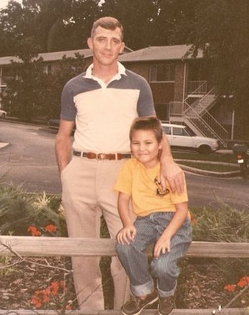Federal health agency misled on dangers from poisoned drinking water at N.C. Marine base

After years of pressure from grassroots activists, the U.S. Agency for Toxic Substances and Disease Registry announced last week that it was withdrawing its 1997 report that wrongly claimed there was little cancer risk from chemical-contaminated drinking water at the U.S. Marine Corps Base Camp Lejeune near Jacksonville, N.C.
ATSDR said it would pull the public health assessment from its website because it could no longer stand by its accuracy.
The unusual announcement came from ATSDR Director William Cibulas at an April 28 meeting in Atlanta with an official community advisory panel involved in addressing the pollution problems at the base, the cleanup of which is being managed under the federal Superfund program for the nation's most toxic waste sites. The ATSDR study underestimated the severity of the contamination, Cibulas said.
In 1982, cancer-causing chemicals were detected in the drinking water at Lejeune, the Marine Corps' main base on the Atlantic coast. More than 70 chemicals were identified in all -- primarily the solvents trichloroethylene and perchloroethylene, but also benzene and other aromatic hydrocarbons, pesticides including DDT and chlordane, and toxic metals like lead and arsenic. In 2007, a retired Marine master sergeant named Jerry Ensminger found a 1981 document indicating a dump site for radioactive waste was located near a rifle range on the base. The document said the waste included strontium-90, which is known to cause leukemia and other cancers.
Ensminger served in the Marine Corps for 24 years, living for some of that time at Camp Lejeune. In 1985, his 9-year old daughter Janey (father and daughter pictured above) died of leukemia. He later went on to found an advocacy group called The Few, The Proud, The Forgotten that pressed the Marine Corps, ATSDR and other government agencies to take action on behalf of those affected by the contamination.
A division of the Centers for Disease Control and Prevention, the ATSDR has come under fire from federal lawmakers in recent years over its shoddy science. As Facing South has reported, the agency is the target of a probe by the House Science and Technology Investigations and Oversight subcommittee, whose chairman -- Rep. Brad Miller, a North Carolina Democrat -- accused it of "jackleg science" for actions including downplaying the health threat of formaldehyde in FEMA trailers provided to people displaced by Hurricane Katrina.
Miller called ATSDR's withdrawal of the flawed health assessment "a welcome step." However, he noted that it took the agency more than 10 years -- along with pressure from activists, media scrutiny and Congressional hearings -- for that to happen. He called on the agency to review other public health assessments in cases where problems have been identified and to take action to ensure similar mistakes don't occur in the future.
"Other steps are necessary to ensure that the agency's future public health assessments are scientifically sound, achieve valid public health conclusions and are based on the most current set of data and information available," said Miller. "Unfortunately, the Subcommittee's investigation of ATSDR over the past year has found that is often not the case."
Miller noted that Camp Lejeune activists have long pointed out that ATSDR's 1997 report used flawed data to support its conclusion that exposure to the detected levels of contaminants would not pose a health hazard for adults. The subcommittee attempted to review those findings but discovered that ATSDR had lost many of the documents and data upon which it based its assessment.
As many as 1 million people may have been exposed to the water contamination at the base, according to the Associated Press. An ongoing study is looking at whether fetuses may have been harmed, and families have filed legal claims for more than $33 billion in damages.
The military newspaper Stars & Stripes reports that the Marine Corps is currently trying to reach about 500,000 people who lived and worked on the based from November 1957 through February 1987, the period during which it's believed residents were exposed to contaminated water. They're asked to register by calling (877) 261-9782 weekdays from 8:30 a.m. to 5 p.m. EST or by visiting the Marines' online registry.
(Photo of Jerry and Janey Ensminger from the Ensminger family. For more photos of people whose lives were affected by the pollution at Camp Lejeune, please visit The Few, The Proud, The Forgotten's online photo gallery.)
Tags
Sue Sturgis
Sue is the former editorial director of Facing South and the Institute for Southern Studies.
